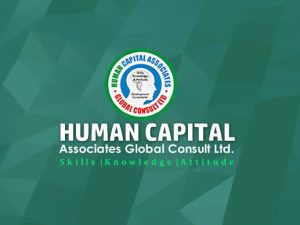Workshop on Hospital Administration for Effective Service Delivery
Workshop on Hospital Administration for Effective Service Delivery
May 13 – 17, 2024, 1st Run: Lagos & Abuja
November 11 – 15, 2024, 2nd Run: Lagos & Port Harcourt
For Tutor -Led Class: 9am – 4:30pm
Workshop fee: N250, 000 per Participant
For online: Delivery via Zoom
Online course fee: N200, 000 per Participant
Available for In-plant Training
Program overview:
Effective and efficient service delivery in hospitals is the point at which the potential of the health system to improve lives meets the opportunity to realize health gains. Health service–delivery performance means access and use by those in need; adequate quality of care to produce health benefits; efficient use of scarce resources; and organizations that can learn, adapt, and improve for the future. All too often, potential benefits are not realized because service delivery underperforms. For hospital organizations to be effective, it must combine financial, physical, and human resources to deliver health services.
For whom:
Medical Directors, Medical Doctors, Chief of Administration, Senior Doctors and Senior Officers in private hospitals, Clinics, Specialist Hospitals, Government Hospitals, Research and Medical Centers, Chief Medical in Pediatrics, Cardiology, Neurology and Gynecology and third sector health organizations involved in managing healthcare delivery system through the hospitals.
Learning objectives:
At the end of the program, participants will be able to:
- comprehend the general concept of hospital administration;
- exposed to the relevant skills in management and administration in hospital service delivery;
- exposed to the concept of customer service delivery in hospital management and administration;
- see hospital management system as key to healthcare service delivery system; and
- see patients’ attention as key to successful discharge of hospital functions and administration.
Course outline
Day 1: Hospital Administration: Overview
- Challenges of health and hospital administration in the new millennium
- Administrative Setting in Hospital Environment
- Administration of hospital services
- Administration of out-patient services
- Administration of hospital departments
- Nursing services
- Ward administration
- Administration of operation theaters
- Material management (nutrition, x-ray, lab, pharmacy, etc.)
- Cost, Value & Qualities
Day 2: Organizing Hospital data and information management
- Medical Records Management
- Filing systems, databases, data security and protection
- Improving Administrative Practice
- Performance indicators (e.g. clerical, purchasing), quality assurance,
- Solving administrative problems
- Decision making and problem solving
- Effective Communication: o Report Writing, o Managing Meetings.
Day 3: Managing Hospital Business Assets for Service Delivery
- Hospital facilities management and Service Delivery
- Hospital Financial Administration
- Policies, Procedures, – Rules & Regulations
- Receipts and Payments, – Office funds Management
- Human Resource Administration
- Policies, Procedures, Practices, Rules and Regulations
- Labour Relations and Welfare
- Productivity improvement
- Self and Time Management
- Career Development
Day 3: The Patient: The Centre Point of Hospital
Administration
- Developing Good Human Relations and
Interpersonal Skills
- Doctor/Nurse and patient relationship from patient
experience perspective
- Patients protection act
- Managing Patients’ feedback
- Managing Staff / Patient Conflicts
- Setting Goals and Standards and Communicating
Performance
Metrics on Patient Experience
- Strategies for improving hospital service delivery
- Hospital administration during disaster
- Change Management in Hospital Administration and
Service Delivery
- Action Plan
Day 5: Attracting and engaging customer-focused employees
in hospitals
- Attributes and benefits of an engaged workforce
- Innovative techniques to hire a patient-centered workforce
- Strategies for recognizing employee commitment to
patient experience
- Fostering employee engagement
- Creating a coaching culture
- Core coaching concepts in healthcare
- The coaching processes
- Adopting a coaching culture through leadership and influence
- The impact of coaching on the quality of care and services
Training Methodology
Lectures, discussions, exercises, and case studies will be used to reinforce these teaching/learning methods.
Related Courses




